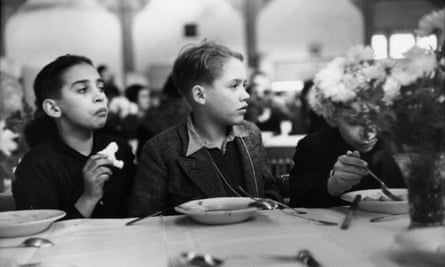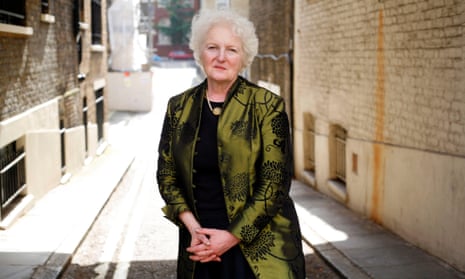As a child I had German au pairs, and my refugee mother spoke German to her parents, as their English was not entirely fluent. But I was aware that Germany was not a country we visited, and that terrible things had happened to the Jews there. I was 10 when my parents told me the full extent of the Nazi destruction of the Jews, and a bit older before I really understood that my grandfather’s mental health had been permanently affected.
Most of my mother’s family, from Heilbronn in southern Germany, perished. Some of my father’s family – his parents had left for Britain before the first world war – perished too, including his beloved grandmother, who sought safety in the Netherlands but was transported to the Westerbork transit camp – where, we think, she died.
So why on earth would I want a German passport? My feelings about Germany were pretty negative for the best part of 50 years. I was not happy on a teenage trip to stay with friends of my mother’s. I felt deeply uncomfortable when I went to Germany to make a film for the BBC about Wagner. And that discomfort continued until a couple of years ago.
First, my synagogue took a group of members to Berlin. Convinced I would feel very negative, I was not looking forward to the trip. But the emphasis on remembering, marking where Jewish families had lived with Stolpersteine commemorative plaques, recording the history and celebrating the contribution Jews had made to German culture, all helped.
And then, earlier this year, my mother’s home town published a biography of her, from 1933 to 1947, written by Joachim Schlör of Southampton University, who was also born there. The city gave us a huge welcome; 150 people came to the launch of a book about someone they had never known. For the first time I felt comfortable in Germany – and, indeed, despite speaking execrable German, quite at home.
I have also felt enormous admiration for Chancellor Angela Merkel, for her open arms to the refugees from Syria and elsewhere, which is in deep contrast to the meanness shown by our own government – with the enormous effort needed even to persuade it to take a few hundred children from Calais. Britain took 10,000 Kindertransport children before the second world war, and many others, my mother included. Why could we not do the same now?

So, when Britain voted for Brexit, I decided to reclaim one part of my history: my German origins. I am a European as well as a proud Briton. I have many intersecting identities – as, I would argue, we all do. I’m British, a passionate monarchist, a Londoner, European, female, Jewish, with strong Irish connections … the list goes on. And, unlike Theresa May, who believes that “if you believe you are a citizen of the world, you are a citizen of nowhere … you don’t understand what citizenship means”, I think it perfectly possible to be a proud Briton – and a grateful one – and to hold a German passport too.
It doesn’t make me any less British, but it does allow me to reclaim a bit of my history. It also declares a belief in Europe, an admiration for how Germany has dealt with its Nazi past, and a real belief that Merkel’s welcome of migrants was both right and brave.
Germany has a rapidly growing Jewish community. Some people may think my decision has been prompted by the rise of antisemitism in Britain. But despite being both shocked and angry at the antisemitism in the Labour party and elsewhere, and the fact it is not forcefully condemned by those who should do so, I do not feel that the present level of prejudice, though disturbing, is a cause to leave this country. This is my home, and I love my country – even when I’m critical of it.
So my decision has nothing at all to do with antisemitism, but is to do with my origins, my admiration for how today’s Germany has dealt with its past, and my sense of being European as well as British. And so, assuming I am granted a German passport, I shall use it proudly.
I hope my mother would not have been horrified, had she lived to see it. At a recent conference to mark 75 years of the Association of Jewish Refugees, I said I was thinking of getting a German passport. I was expecting some of the people present, who had themselves been refugees in the 1930s, to be appalled. But they were not. Indeed, their children and grandchildren were thinking of doing the same.
So I suspect and hope my mother would have been entirely in favour. And now I just need to find all the documents. Like many refugees, my mother threw nothing away. Her birth certificate must be somewhere. When I find it, I’ll send off the form, happily.
